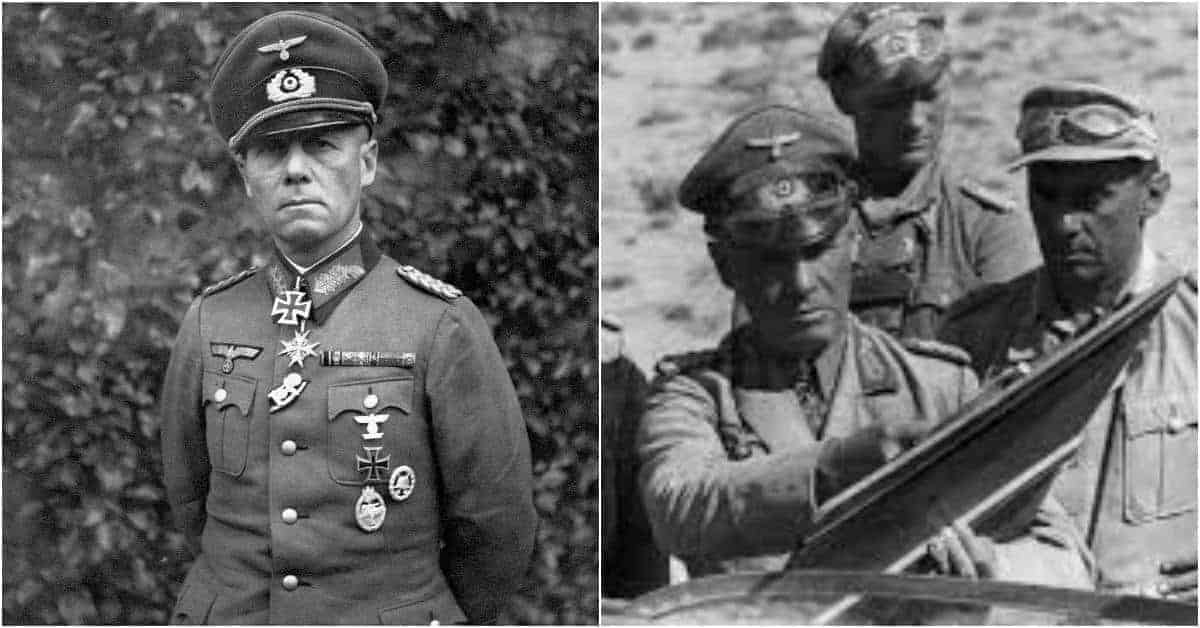Erwin Rommel, the Desert Fox, is one of the most celebrated and respected generals of the Second World War and indeed, one of the greatest generals of all time. His prowess on the battlefield earned him more than a battlefield earned him the admiration of both his men and his enemies alike, with adversaries lining up to pay tribute to their greatest foe in the field.
“We have a very daring and skillful opponent against us, and, may I say across the havoc of war, a great general,” said no less than Winston Churchill himself of Rommel, just after the war ended in his book on the conflict, The Second World War. When Churchill came under fire in the press for praising a man seen as a Nazi, he doubled down, commenting “He also deserves our respect because, although a loyal German soldier, he came to hate Hitler and all his works, and took part in the conspiracy to rescue Germany by displacing the maniac and tyrant.
For this, he paid the forfeit of his life. In the sombre wars of modern democracy, chivalry finds no place… Still, I do not regret or retract the tribute I paid to Rommel, unfashionable though it was judged.”
Indeed, the extent to which Rommel was a Nazi is one of the great questions that has been asked since the war and one that is debated to this day. Rommel, while respected by those who fought him from afar as generals and indeed, thought of a genius to many of those who fought beneath him in the Wehrmacht, has often faced criticism of his tactics and his decision making, with some post-war writers holding him up as a man prone to erratic behavior on the battlefield and a great sufferer from the stresses of the job.
“Rommel was jumpy, wanted to do everything at once, then lost interest. Rommel was my superior in command in Normandy. I cannot say Rommel wasn’t a good general. When successful, he was good; during reverses, he became depressed,” said Sepp Dietrich, who fought under Rommel in France and ended the war as the most senior figure in the Waffen-SS.
A similar sentiment was expressed by Luftwaffe field marshal Albert Kesselring, a contemporary of Rommel’s and an officer of similar rank, who later wrote: “He was the best leader of fast-moving troops but only up to army level. Above that level it was too much for him. Rommel was given too much responsibility. He was a good commander for a corps of army but he was too moody, too changeable. One moment he would be enthusiastic, next moment depressed.”
Who was this great man then? We know him today as a great tactician, a charismatic leader, a respected general and the last German participant in the so-called “clean war”. But how true are those assessments? Was the Desert Fox as chivalrous as his enemies thought him to be? Let us delve into the life and lesser-known facts of Erwin Rommel.

1 – Rommel wasn’t from a military family, or even a particularly rich one
Most important figures in the hierarchy of the German Army – or any major army of the time – came from a background that was steeped in military men. There was no preparation for a career in the German Army like having been born to someone who was already in the German Army, and though the young Erwin’s father had been a Lieutenant in the Reichsarmee, he was nothing special at all really.
All German men were required to serve national service in the military and Erwin Rommel Senior had been no different: he had done his bit like everyone else but then left to become a school administrator in the southern German town of Heidenheim, where Erwin Junior was born.
Erwin Senior was a headteacher and his wife, Helene, was the daughter of the head of the town council, so the family was far from poor, but they were also a long way from the aristocrats and gentry that dominated the army of the Kaiser. Moreover, they were from Baden-Württemburg, which set them apart from the Prussian origins and northern German domination of the higher ranks of the military.
The young Erwin was, even as a child, clearly highly organized and possessed a talent for engineering. He reportedly constructed a fully functioning, full-size glider at the age of just 14 and could assemble and disassemble a motorcycle by his mid-teens. With poor grades at school, he was thought to be considering putting his talents with his hands to good work in a local factory that produced airships and other aeronautic equipment, but his father pushed him towards a career in the army, from which he never looked back.
The future Field Marshal, however, would do his chances a further setback by fathering a child out of wedlock in 1912. Already disadvantaged by being born in the wrong place, to the wrong family, to a father who did the wrong job, Rommel – who was engaged to Lucia, the woman he would later marry – could not wed the mother of the child, Walburga Stemmer, as she was from a working-class background. To do so would have completely ruined his military career. Nevertheless, he agreed with Lucia to financially care for the child, who grew up with her grandmother.
Erwin, Lucia, Walburga and the child all lived together at one point in Stuttgart and the daughter was introduced as Rommel’s niece. Walburga died in 1928 in mysterious circumstances: her death was attributed to pneumonia, though many think that she may have killed herself.

